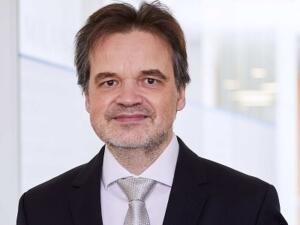Astellas defends use patent and SPC with Hoffmann Eitle
Astellas has successfully defended an important patent and SPC for the treatment of an overactive bladder. The Federal Court of Justice has now upheld the property rights and thus overturned a first-instance judgment.
26 July 2024 by Konstanze Richter
The use patent EP 1 559 427 and the associated SPC (DE 12 2013 000 047) form the basis of Astellas’ drug Betmiga with the active ingredient mirabegron. It is one of the pharmaceutical company’s top-selling drugs.
The active ingredient mirabegron was previously considered for the treatment of diabetes mellitus, among other things. At the same time, it was already known that the substance class to which mirabegron belongs is also suitable for the treatment of urinary urgency and incontinence – both symptoms of an overactive bladder.
Astellas loses at first instance
In 2021, Ratiopharm filed a nullity action against the use patent and the SPC at the German Federal Patent Court on the grounds of lack of novelty. The court of first instance subsequently revoked the property rights in spring 2023 (case ID: 3 Ni 2/21 (EP)). The Federal Patent Court was of the opinion that the novelty of the invention must result from the new use of an already known active ingredient. The judges found that this was not the case here, as documents already indicated that the class of substances was also suitable for urinary urgency and incontinence.
Astellas, on the other hand, argued that the purpose of the basic patent was to find an improved therapy for overactive bladder and lodged an appeal.
Tides turn
The Federal Court of Justice did not follow the reasoning of the first-instance court. According to the judges of the 10th Senate, led by presiding judge Klaus Bacher, there was no sufficient evidence from the state of the art that mirabegron is also suitable for treating an overactive bladder, despite the knowledge of the properties of the substance group (case ID: X ZR 92/23).
- Klaus Bacher
In addition to presiding judge Bacher, the bench comprised judges Hermann Deichfuß, Helga Kober-Dehm, Nina Marx and Renate von Pückler.
There was no parallel infringement action in Germany. In the nullity action, a mixed team from Hoffmann Eitle led by patent attorney Peter Klusmann represented the pharmaceutical manufacturer Astellas. Patent attorney Jan Zillies and partners Dirk Schüßler-Langeheine and Clemens Steins as well as associate Melanie Schain provided support. The law firm has a long-standing client relationship with Astellas and advises the pharmaceutical company on prosecution.
- Peter Klusmann
- Jan Zillies
- Dirk Schüßler-Langeheine
Teva/Ratiopharm also relied on a mixed team from its go-to law firm Bird & Bird. While patent attorney Michael Alt took the lead, he worked with litigator Oliver Jüngst. The law firm is regularly active for the generics company, for example against Bayer in the dispute over Nexavar (sorafenib). It also represented the company against Novartis concerning Gilenya (fingolimod) and Copaxone (glatiramer acetate).
- Oliver Jüngst
- Michael Alt
Success abroad
Courts in other jurisdictions have also upheld the patent. There are parallel disputes to EP 427 and the national SPCs in the UK and the Netherlands. In the UK, the Court of Appeal decided in July 2023 to uphold the property rights (case IDs: CA-2022-001348, 001349). Here, Teva and Sandoz (represented by Pinsent Masons) faced Astellas (represented by Hogan Lovells).
In the Netherlands, the District Court of The Hague dismissed the nullity action at first instance (case ID: C/09/625472 / HA ZA 22-183.) Vondst acted for the plaintiff Sandoz, assisted by patent attorneys from De Vries, while Hoyng ROKH Monegier represented the patent holder Astellas. The appeal is pending.






